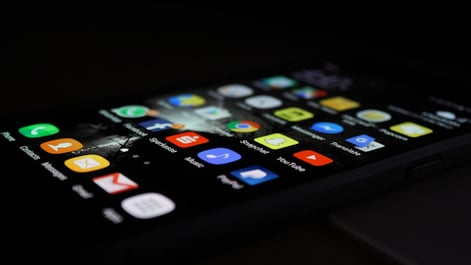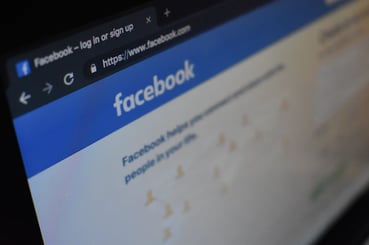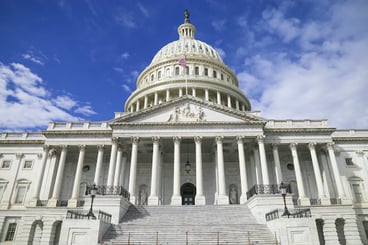

Picture this: It’s the winter of 1996. Gene Kelly has just died, Happy Gilmore is newly in theaters, Tupac just released the groundbreaking All Eyez on Me album, and yours truly is about to be six months old. But February of 1996 was also an impactful month for policy that would go on to affect the course of the internet forever.
Section 230 was essential to the internet’s adoption in the ‘90s, leading to social media, video streaming, and cloud computing as we know them. The law states that, “No provider or user of an interactive computer service shall be treated as the publisher or speaker of any information provided by another information content provider.” Basically, this means that platforms and providers are deemed intermediaries of content and aren’t liable as long as they take reasonable steps to delete or prevent access to inappropriate content.
Legal experts note that amending or removing the Section would change social media as we know it. Why are legislators going after the Section now? Well, both political parties have increased scrutiny on social media companies in recent years: Republicans with accusations of censorship and Democrats with complaints that social media companies aren’t doing enough to block misinformation and violent content.
In recent weeks, this law has been on blast from President Donald Trump and Republican senators, who have asked the FCC to examine the Section following the President’s publishing of an executive order to limit the legal protections that tech companies currently have.
In fact, it’s been a pretty zany last few weeks when it comes to social media policy and developments. If you haven’t been paying attention, you’re not the only one; there have been a lot of other important news topics to focus on of late. That being said, I’m happy to break it down for you.
Snapchat Restricts Promotion
In early June, Snapchat announced that President Donald Trump’s verified account will no longer be promoted in the app after the company concluded his activity on Twitter promoted violence. In response, Trump’s campaign accused the company of “actively engaging in voter suppression.”
This development from Snapchat came shortly after President Trump’s comments in reaction to protests nationwide following the horrific murders by police of George Floyd, Breonna Taylor and needless other Black Americans. Twitter promptly restricted the president’s tweets, noting that they ‘glorified violence.’
Twitter Introduces New Labels
This warning label feature from Twitter was the newest development after the organization also added a ‘fact-check’ label to one of the president’s tweets about the 2020 election, as well as labels to two tweets from the Chinese government.
Both Twitter and Snapchat enacted these developments in an effort to limit the spread of misinformation and inflammatory content on their platforms. As noted in Axios, “When the coronavirus pandemic hit, nearly every platform made clear that they intended to take strong action to police misinformation surrounding that crisis.”
But ongoing misinformation about national protests and social posts glorifying violence didn’t receive the same attention from YouTube and Facebook that the companies promised. Facebook left similar posts to those deleted by Twitter up on its site and YouTube also has taken a more converative approach in its labeling of misinformation and inflammatory content.
Facebook Does… Something?
 It seems like Facebook’s infamous “Oversight Board” isn’t actually as independent from the company as once implied. The board recently noted, “posts like Trump’s fit the scope of the type of content that it will review, but the board is not yet operational and cannot review any cases at this time.”
It seems like Facebook’s infamous “Oversight Board” isn’t actually as independent from the company as once implied. The board recently noted, “posts like Trump’s fit the scope of the type of content that it will review, but the board is not yet operational and cannot review any cases at this time.”
The questions we have to ask now are: Will an oversight organization like the one Facebook is promising truly be independent from the company’s creator? How can we ensure these policies will be truly objective?
One thing’s for sure: Facebook employees have had enough with the lack of labeling. Nearly three dozen former Facebook employees called out Zuckerberg’s decision to leave Trump’s posts unaltered and nearly 5,500 employees in a recent Facebook town hall called for reform in the organization’s policies. Even scientists think the company’s current policy is not enough.
Clearly one of these people (or the backlash in the press) got through to him because no less than a week later Zuckerberg announced that the company will review a number of its policies and decision-making processes, including for violent content and the company also shared that it removed over 900 white supremacy groups from the platform. But new research reveals that in order to truly be able to moderate content on the site, Facebook will need at least 30,000 people specifically dedicated to the job, something unlikely to happen anytime soon.
What’s next for 230?
 As Trump continues to criticize social media giants for ‘censorship,’ policymakers question the steps he will legally be able to take to stop the companies. Free speech experts have said that the companies have the right under the Constitution to refuse to promote Trump’s account and censor content under their liability protections. As mentioned above, in response to this, the president signed an executive order tasking regulators with evaluating whether online companies’ liability protections should be narrowed, singling out social media.
As Trump continues to criticize social media giants for ‘censorship,’ policymakers question the steps he will legally be able to take to stop the companies. Free speech experts have said that the companies have the right under the Constitution to refuse to promote Trump’s account and censor content under their liability protections. As mentioned above, in response to this, the president signed an executive order tasking regulators with evaluating whether online companies’ liability protections should be narrowed, singling out social media.
What are the responsibilities of tech companies? Should organizations be monitoring free speech or should the government be in charge or regulating? What should they be liable for and what shouldn’t they be? If we just let Big Tech do whatever it wants, will it all be OK in the end? Ars Technica recently posed many of the same questions (and even posited what a new world with amendments — or the flatout repeal — of the legislation would look like).
It’s twenty-three years after 230 passed and while I’m close to being able to legally rent a car on my own, Section 230 has remained largely unchanged. There are a lot of opinions about how this will all play out, but no one can be certain. What does seem obvious is that Big Tech, in particular social media companies, are in the midst — maybe just the beginning — of a showdown with the federal government that could change the industry forever.
To learn more about our policy expertise and the work we are doing for clients, feel free to reach out to me at jillian@highwirepr.com.
Image Credit: Black phone photo – Rami Al-zayat; Facebook – Kon Karampelas; Capital – Louis Velazquez
